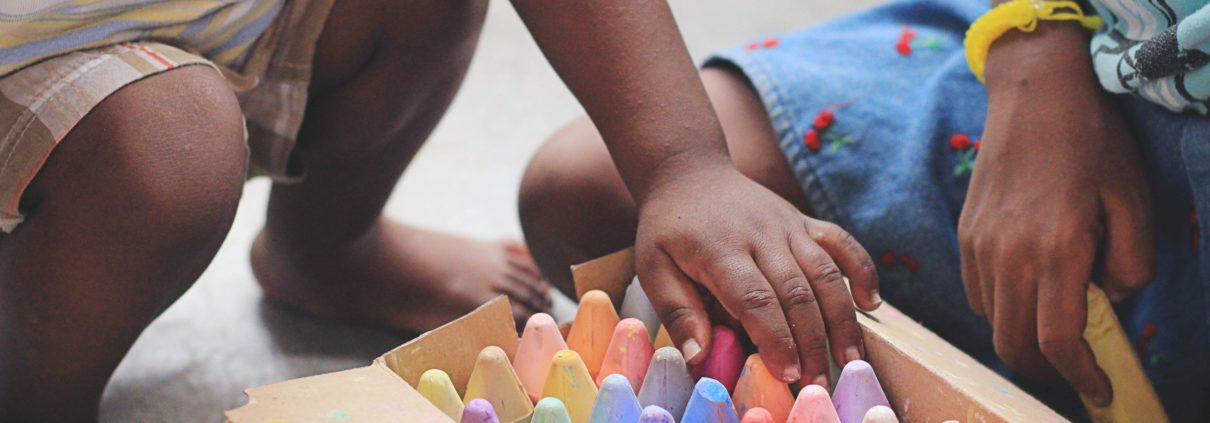How Therapeutic Activities for Children Can Enhance Your Home Life
Though taking care of a child is a real blessing indeed; sometimes things can become difficult. Such difficulties, however, are not necessarily results of bad behavior. A child, who is still growing and adjusting to life, may encounter troubling experiences, minor or major, that they do not know how to react to, affecting them deeply. Huntington Beach Christian Counseling can provide support to help children navigate these challenges in a healthy, constructive way.
 As stewards of the child, parents or other guardians are naturally concerned. But though they may desire to get to the root of the problem so that a solution can be found, the child might not be able to properly express their feelings or might not wish to do so. Rather than becoming frustrated and angry at the child for not saying what they feel, parents or guardians should try other ways to get the child to open up and share what is bothering them, such as the following suggested therapeutic activities for children.
As stewards of the child, parents or other guardians are naturally concerned. But though they may desire to get to the root of the problem so that a solution can be found, the child might not be able to properly express their feelings or might not wish to do so. Rather than becoming frustrated and angry at the child for not saying what they feel, parents or guardians should try other ways to get the child to open up and share what is bothering them, such as the following suggested therapeutic activities for children.
Therapeutic Activities for Children to Open Up
While these methods are generally used at home, they may also be done in school or other social settings as deemed appropriate.
Expressing Themselves through Drawing
Not everyone, including mature adults, is able to easily express how they feel. Sometimes the words are just not there, which can be particularly true for very young children. But just because there are seemingly no words to describe what is happening inside, it does not mean that there are no visual representations in the mind.
Through drawing, a child may be able to show what may be troubling them through pictures, shapes, lines, and colors. This can then give parents or guardians a clue as to what may be going on.
For this to work, however, it helps to have a variety of materials available for the child to work with such as crayons, markers, colored pencils or pens, chalk, water colors, or paint. Paper is the usual choice for a working canvas; but it can also be done on a whiteboard, chalkboard, the sidewalk, or the walls of the house (if such is okay!). Kids love to have choices so allowing them to choose what to use can make the process easier and more inviting.
Role-Playing
 Another effective method for young children is role-playing. Sometimes the child knows how they feel, but they are afraid to say it. Role-playing allows them to act out their inner emotions and thoughts from the “safety” of pretending to be someone else.
Another effective method for young children is role-playing. Sometimes the child knows how they feel, but they are afraid to say it. Role-playing allows them to act out their inner emotions and thoughts from the “safety” of pretending to be someone else.
Aside from revealing what is disturbing them, role-playing is also a good way to teach a child how to deal with certain situations in school (e.g. bullying at school, peer pressure, overcoming anxiety in class) or their immediate community (e.g. asking for help, dealing with strangers).
For this to be effective and fun for the child, the parent or guardian must act along as well. It helps to try to vary one’s voice and actions so that the situation seems more realistic. When processing the results, however, the parent or guardian must be very discerning as sometimes not everything mentioned during the play-acting may be true. But still, it is a good method to get a child to open up.
Journaling
For children who prefer to write, it may help for them to pour out their thoughts in a journal. Journaling allows them to really think deeper about their thoughts and experiences, especially since they can read them later on, allowing them to reflect even more.
What they write does not have to be organized; it can just be a series of rants or praises about something in particular. Even if they are still “unsure” about how they feel, the process of journaling may allow their unclear and hidden emotions to be revealed later on as one thought may lead to another.
 The challenge here is for parents or guardians to get the child to try, since they may feel like they are doing additional homework. But if they can be encouraged to give it a try, even if their first attempt only results in a few phrases written down, they might eventually see how helpful journaling can be. Privacy is another issue, especially for older children. In such cases, a heart to heart talk about the need for a trusted adult to know what is going on may be needed.
The challenge here is for parents or guardians to get the child to try, since they may feel like they are doing additional homework. But if they can be encouraged to give it a try, even if their first attempt only results in a few phrases written down, they might eventually see how helpful journaling can be. Privacy is another issue, especially for older children. In such cases, a heart to heart talk about the need for a trusted adult to know what is going on may be needed.
Therapeutic Activities to for Children to Relax
Meditation
Meditation is being used by many adults to relax, especially after a stressful day at work. The same can also be done by children, after first explaining the purpose behind it as they may wonder why.
The following are some simple meditation steps to follow:
- In a quiet place, ask the child to slowly breathe deeply. Closing the eyes is preferred, so they can focus on their breathing, but it is not required.
- After some moments, tell them to think of a happy place for them to be in.
- Then tell them to imagine that they are there, relaxing or having fun. They should think about the details of the place, such as what they see, hear, or smell.
- Once “relaxed,” suggest that they are now thinking about their emotions while sitting in this place. If they wish, they may even think about their “worries.”
- Tell them to keep breathing slowly as they think of these emotions.
- Inform them that when they are ready to open their eyes they can do so.
- Then ask them about their meditation experience.
The goal is for them to be calmer inside and hopefully more willing to share what is bothering them.
Prayer
Prayer is another important way to get the child to relax and open up as they commune with God. Even though they might not fully understand their faith yet, it is still good for parents or guardians to get them to become more dependent on God, even at a young age, as this will help them even more in the future.
 Initially, the child may need some help in how to pray so the parent or guardian can first model a prayer where God’s almighty power is acknowledged; thanksgiving is declared, and then prayer requests are made. After some sessions, the child can then be asked to pray, out loud or silently. The objective here is for the child to become more relaxed as they begin to depend on and trust in God.
Initially, the child may need some help in how to pray so the parent or guardian can first model a prayer where God’s almighty power is acknowledged; thanksgiving is declared, and then prayer requests are made. After some sessions, the child can then be asked to pray, out loud or silently. The objective here is for the child to become more relaxed as they begin to depend on and trust in God.
Self-Care
Similar to adults, children need exercise, enough rest, a healthy diet, and leisure time to be strong enough to deal with the challenges in life. As their protectors and guides, parents or guardians need to ensure that the child knows the importance of taking care of themself.
As they are still young, they will not be able to balance such things on their own. It helps to establish a routine for them to study, play, and rest. Parents or guardians may also need to reiterate the importance of eating well as many children prefer junk food nowadays. The proper use of gadgets is another vital lesson to prevent gadget addiction.
Seeking Christian Counseling for Children
Despite all the above-mentioned therapeutic activities, some children may still have difficulty coping with whatever is bothering them. In such instances, it is best to seek a Christian counselor to discover the underlying issues and give them the help they need.
In Christian counseling, the latest counseling methods will be used to get the child to open up. But most importantly, the child will be connected to God through prayer and meditation on Scripture so that they may experience God’s healing power. If needed, other family members may also undergo Christian family counseling to improve the family’s relationship with one another and with God.
If you or a friend has a child that may need professional therapeutic activities for children, seek Christian counseling soon. Help your child live the life they are meant to have by connecting them to God. Christian Counselors at Huntington Beach Christian Counseling can assist in providing the support your child needs.
“Smart”, Courtesy of Frank McKenna, Unsplash.com, CC0 License; “Child of Light,” courtesy of Matheus Bertelli, pexels.com, CC0 License; “Sidewalk Chalk”, Courtesy of Tina Floersch, Unsplash.com, CC0 License; “Dear Jesus,” courtesy of David Beale, unsplash.com, CC0 License




